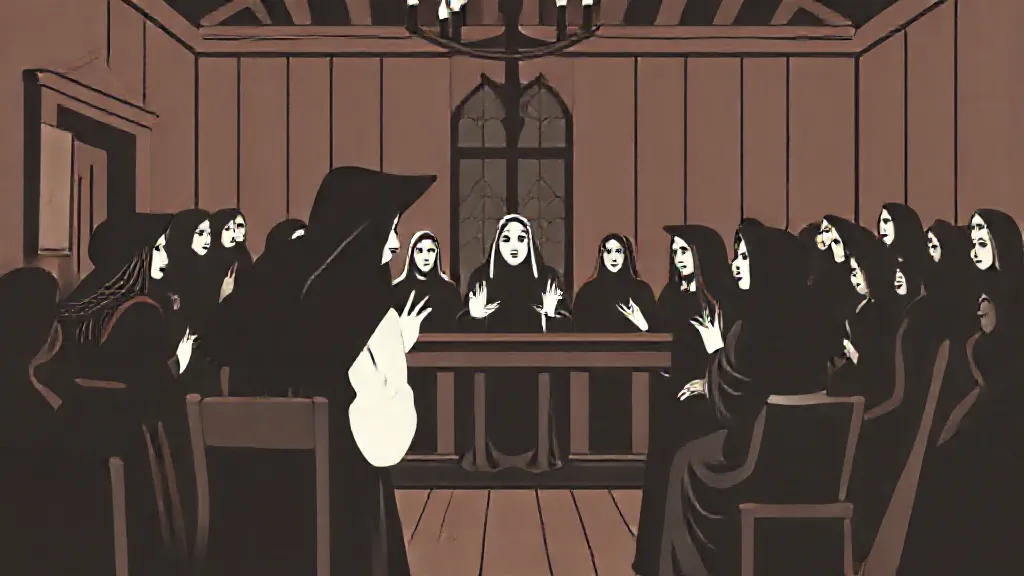The Salem Witch Trials of 1692 serve as a profound historical episode that reflects the complexities of colonial society in New England. This dark chapter in American history not only reveals the fears and anxieties of the time but also highlights the intricate web of social, political, and religious dynamics that characterized life in a Puritan settlement. Understanding the Salem Witch Trials requires an exploration of the societal context in which these events unfolded, including the role of religion, the position of women, and the impact of economic strife.
The Puritan Influence on Society
The Puritans, who settled in New England in the early 1600s, brought with them a strict religious doctrine that emphasized a literal interpretation of the Bible and a belief in the supernatural. This belief system fostered a climate of fear and suspicion, particularly regarding witchcraft. Puritan society was characterized by a strong communal identity, where individual actions were closely monitored, and dissent was often met with harsh consequences.
The Salem Witch Trials can be seen as a manifestation of this rigid social structure, where accusations of witchcraft served to reinforce social norms and maintain control over the community.
Gender Dynamics and the Role of Women
The Salem Witch Trials also underscore the gender dynamics prevalent in colonial society. Women, particularly those who were single, widowed, or otherwise marginalized, were disproportionately accused of witchcraft.
This reflects the limited roles available to women in Puritan society, where they were often viewed as subservient to men. The trials highlighted the fears surrounding female autonomy and sexuality, as many of the accused women were seen as threatening to the patriarchal order. The trials thus served as a mechanism to suppress women's voices and maintain male dominance within the community.
Economic Factors and Social Tensions
In addition to religious and gender issues, the economic context of Salem Village played a critical role in the witch trials. The late 17th century was a period of economic hardship for many in the region, marked by land disputes and a declining economy. These tensions created a fertile ground for scapegoating, as community members sought to blame their misfortunes on others.
The trials became a way to channel social grievances and resolve conflicts, as accusations often aligned with existing rivalries and tensions within the village.
Fear and Paranoia in a Fragile Society
The Salem Witch Trials were fueled by a pervasive atmosphere of fear and paranoia. The community was grappling with a series of crises, including conflicts with Native Americans, the threat of disease, and political instability.
This environment heightened the sense of vulnerability among the colonists, leading them to seek explanations for their suffering. The trials provided a convenient outlet for these fears, allowing individuals to project their anxieties onto others and create a narrative of evil that could be confronted and eliminated.
The Role of Authority and Governance
The trials also reveal the complexities of authority and governance in colonial society.
The legal proceedings during the trials were marked by a lack of due process and reliance on spectral evidence, which allowed for the conviction of individuals based on dubious testimonies. The involvement of local leaders and clergy in the trials reflects the intertwining of religion and politics in Puritan society. As the trials progressed, dissent against the methods used by the courts began to emerge, ultimately leading to a crisis of confidence in the judicial system and a reevaluation of the principles of justice.
Legacy and Reflection on Colonial Society
The legacy of the Salem Witch Trials extends far beyond their immediate aftermath. They serve as a cautionary tale about the dangers of extremism, intolerance, and the breakdown of rational discourse. The events in Salem prompted a reexamination of the legal system and contributed to the development of more equitable judicial practices in colonial America.
Furthermore, the trials have become a symbol of the consequences of mass hysteria and the importance of safeguarding individual rights against the tyranny of the majority.
Conclusion: Lessons from Salem
In conclusion, the Salem Witch Trials reflect the multifaceted nature of colonial society, highlighting the interplay of religion, gender, economics, and authority. They serve as a reminder of the fragility of social order and the potential for fear to drive communities to commit acts of injustice.
By studying the trials, we gain valuable insights into the historical context of early America and the enduring lessons about the dangers of scapegoating and the importance of due process in a just society.
